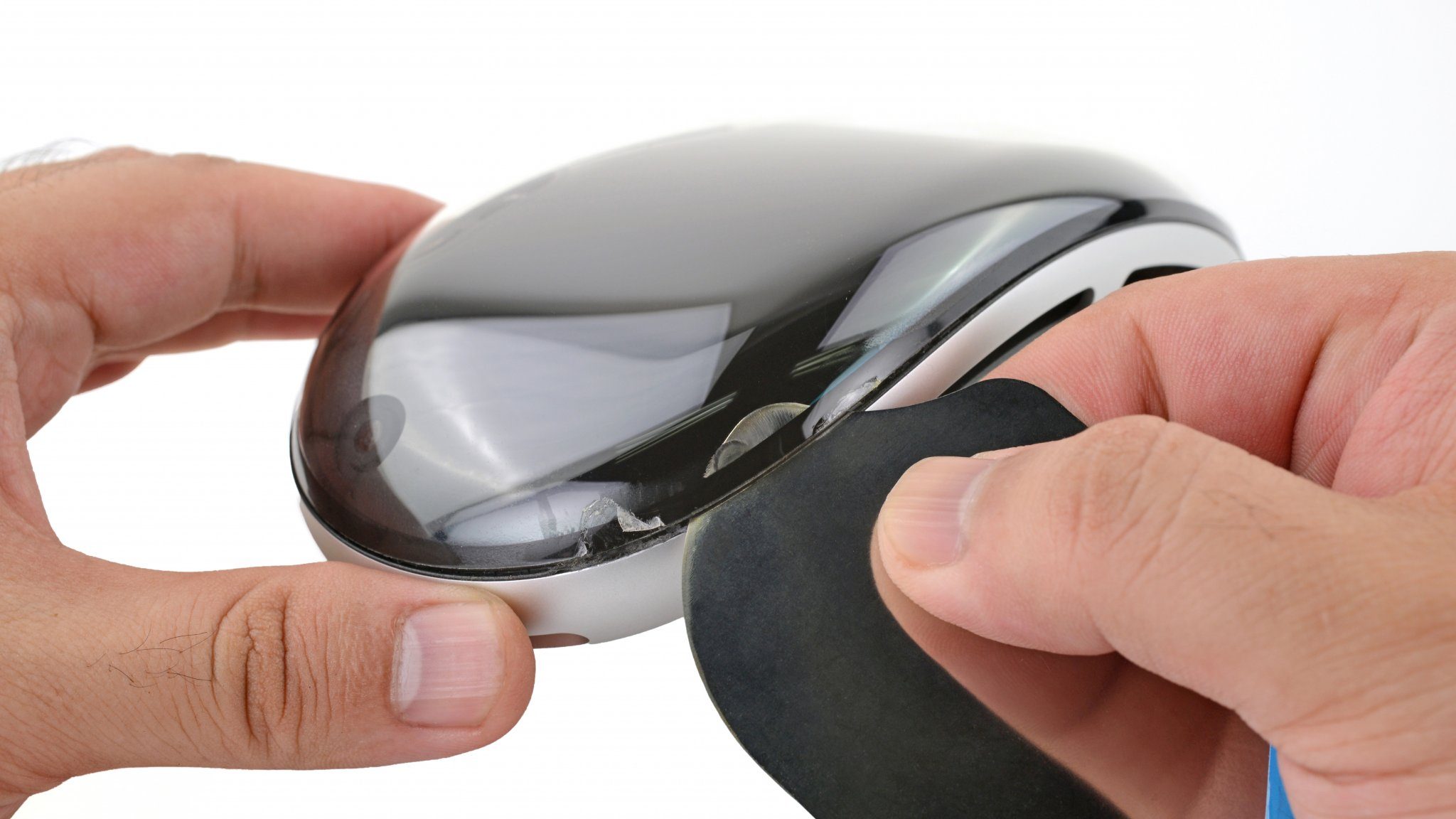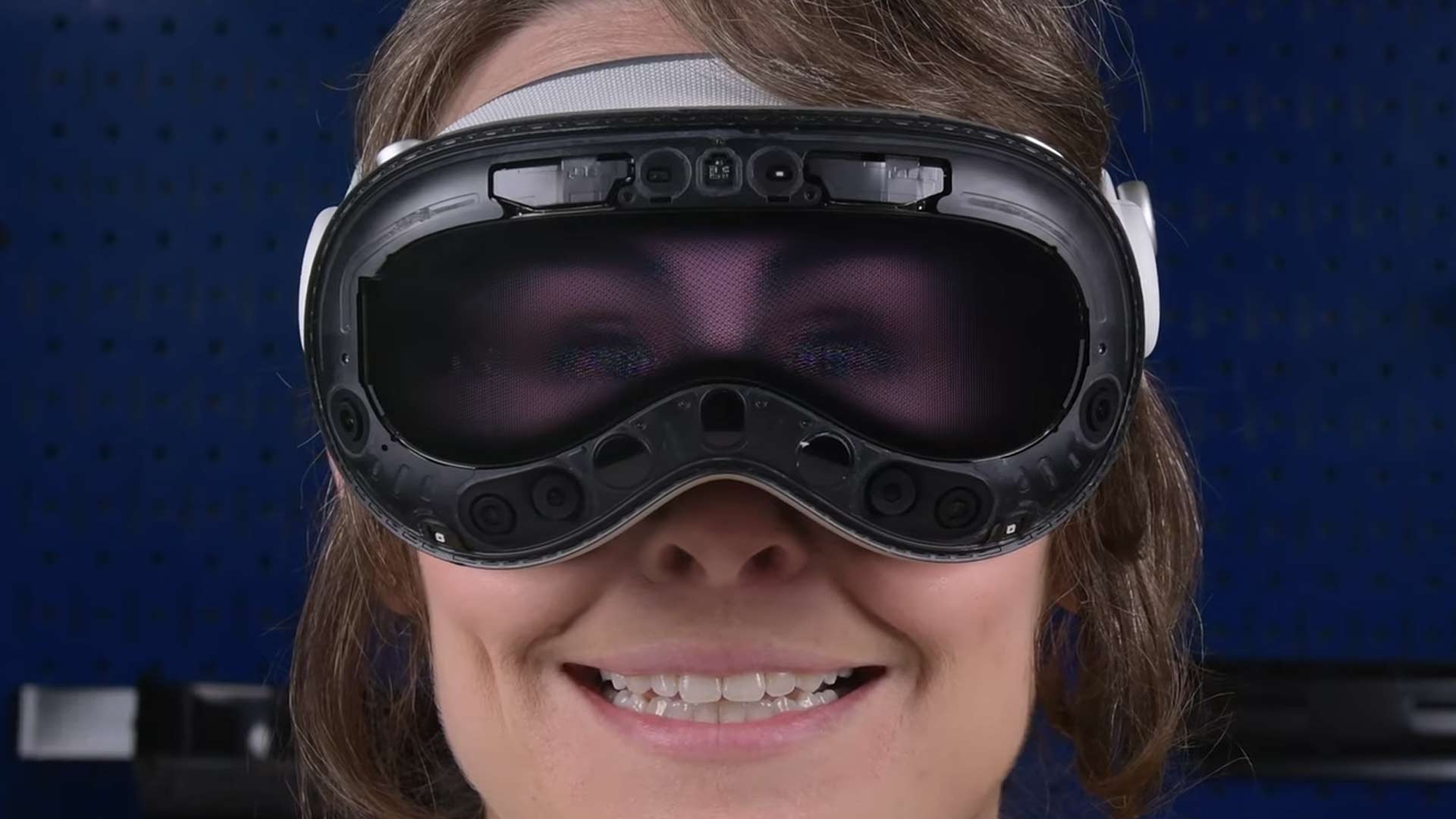Vision Pro is here, and if you were wondering what’s under the hood of Apple’s $3,500 mixed reality headset, iFixit has done another one of its patented teardowns to crack some tightly-glued seals and un-torque a billion-or-so screws.
Vision Pro was bound to be incredibly complex, what with its inclusion of eye-tracking, automatic interpupillary distance (IPD) adjustments, an outer ‘EyeSight’ display—not to mention its array of sensors, chips, etc. That’s what we already knew going in, but it’s something else once the front glass is jimmied open and everything is laid bare.
And the iFixit team had quite the time loosening the front glass, using a heat gun to break what was very likely a smartphone-style glued seal, which also lightly singed the fabric interior light gasket. That’s 34 grams-worth of weight pried off Vision Pro, which overall weighs 600–650 g (including headstrap, excluding external battery).

Underneath the glass was a sheet of black plastic, which was removed with relative ease, uncovering the EyeSight display, which the headset uses to not only display a virtual view of the user’s eyes, but also to let onlookers known when you’re busy in an immersive experience. The iFixit teardown gives us ostensibly the first public look at EyeSight under the hood, and the results are pretty interesting.
EyeSight is covered in lenticular lenses, or similar to the little ridges you might find on one of those novelty holographic illusion cards. A diffusion layer with a similar lenticular pattern placed on top smooths the final image to onlookers, but also reduces its overall brightness.
Here’s a look at EyeSight without that diffusion layer:

On the other side of the headset, that lightly singed fabric light blocker pops off easily enough with the help of a plastic pry tool, revealing a bevy of screws and connector cables. That’s when the fun begins of removing a lot of tape, to take out a ton of screws, to remove an impressive number of ribbon cables.
Like with the teardown of Meta Quest 3 from late last year, Creative Electron provided another 360 X-ray.
For a deeper dive, make sure to visit iFixit’s full teardown. The team isn’t done investigating Vision Pro, and we’re also still awaiting a reparability score and general repair guide. Like all Apple products, it likely won’t score highly—and probably less so due to its extremely complicated design and array of custom parts that Apple will very likely never provide outside of its first-party repair teams.
Notably, some of easier bits to remove were the headset’s magnetically-attached light blocker, and surprisingly, the battery and struts with house Vision Pro’s headphones—both of which can be removed with a standard SIM ejector tool. Still, not much of this teardown was effortless, iFixit says, noting there were “[t]ons of convoluted construction, finicky fasteners, and a bevy of brackets.”
While we’re waiting for the promised reparability score, you can catch the full six-minute video below:



